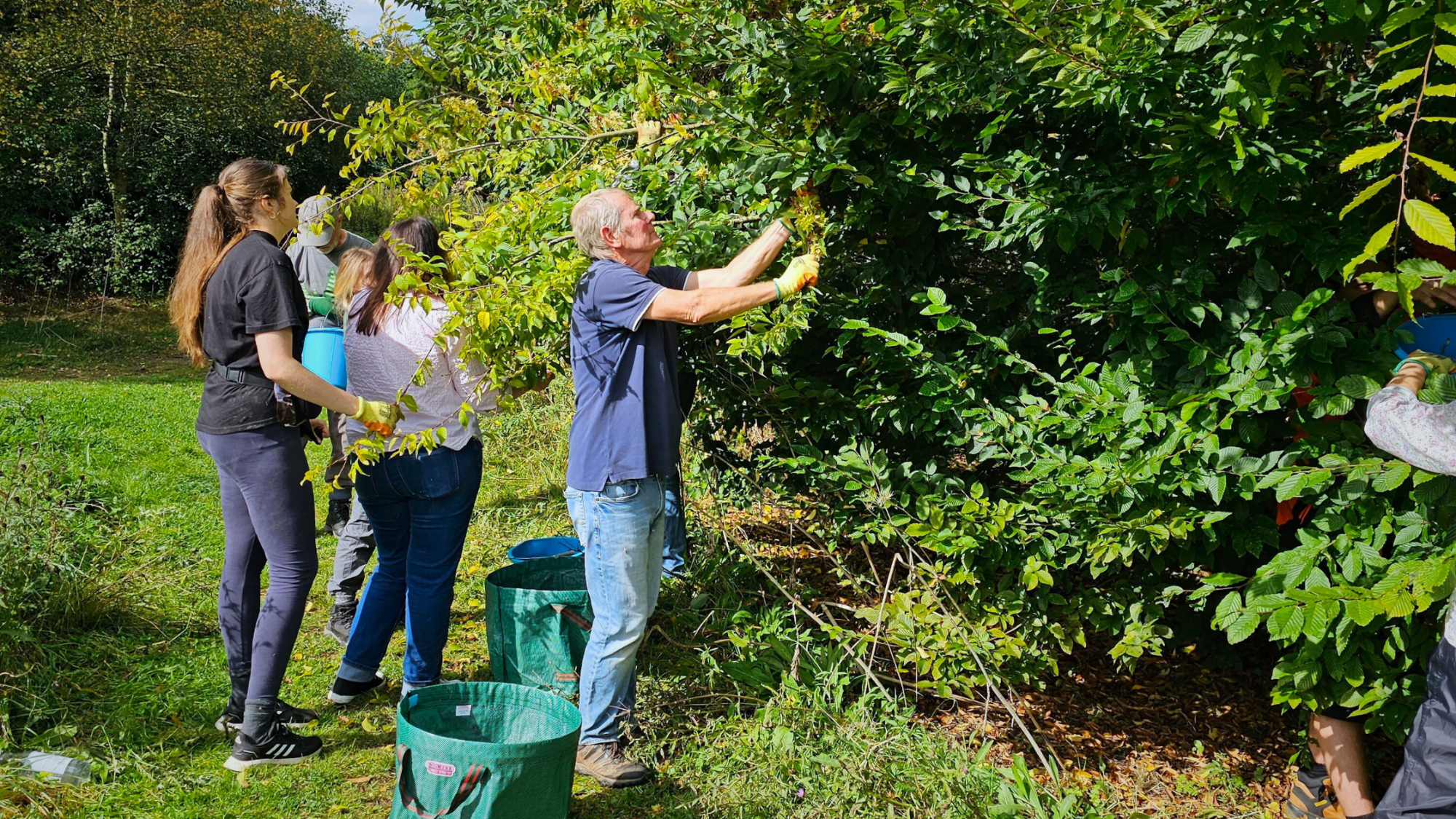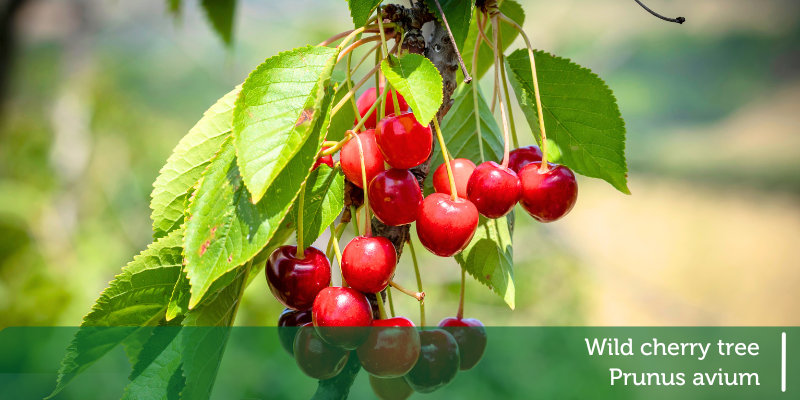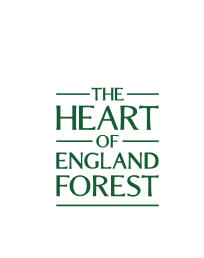Behind the scenes: Growing the Forest one seed at a time
The seed saving season has begun! With the help of willing and enthusiastic staff and volunteers, last autumn we collected over 950kg of seed from 20 species within our woodlands, which will become the next generation of native broadleaves and important hedgerow species to help grow the Forest. This year, with higher ambitions than ever before, our tree nursery staff and volunteers have already started to collect seed from this year's first - the wild cherry tree!

Why do we collect seeds?
Simply, to grow more trees, but it runs much deeper than that. Collecting seeds from the healthiest trees in the Forest is a sustainable way to develop seed-lines that are well adapted to a particular environment. By prioritising collected seeds sourced from local, native populations in the Forest, we ensure that the trees and plants we reintroduce into the environment have a higher likelihood of withstanding the changing climate.
The seeds our volunteers have been and will be collecting have adapted over countless generations to thrive in their specific local conditions, making them resilient warriors in the fight against climate change in this area of the world.
During the process of gathering seed, it is important that all our staff and volunteers work on the rule that we take no more than 50% to ensure that there is enough food for wildlife over the winter. We also only take from a selection of carefully chosen trees, that are healthy and show signs of resilience to ensure the next generation of trees have traits that are most suitable for the growing conditions of the Forest. For example, we search for seed from trees that have shown evidence of drought resilience, or flood enduring, and indeed, bountiful fruiting.
It is imperative that seed collection is sourced from a variety of sites within the Heart of England Forest to ensure a range of genetic diversity.

A first for the Forest
It may seem hard to imagine that the seed collecting in the Forest has already began, but this year because of the ripened fruits appearing earlier than normal our staff and volunteers have started collecting wild cherry tree seed. We have been increasing our range of species each year as the Forest grows and this year there are a good number of cherries appearing on the wild cherry trees, therefore, working with nature, we have utilised the opportunity.
Different species will become ripe at different times right up to November, and because of the variety we are collecting this year there will be plenty of opportunity to get involved in seed saving - right up until Christmas!
What seeds are we collecting this year?
This year the tree nursery team and our volunteers aim to collect from 28 species of seed from various places in the Forest, compared to the 14 species collected from last year.
The seed collection list for 2024
- Field maple
- Sycamore
- Alder
- Silver birch
- Hornbeam
- Sweet chestnut
- Dogwood
- Hazel
- Midland hawthorn
- Hawthorn
- Spindle
- Common beech
- Holly
- Privet
- White poplar
- Aspen
- Wild cherry
- Bird cherry
- Blackthorn
- Sessile oak
- English oak
- Purging buckthorn
- Whitebeam
- Rowan
- Wild service
- Small leaved lime
- Wayfaring
- Guilder rose
Supporting the seed collection season
Many people like to grow plants at home and wish to donate them to the Forest. However, we plant only native broadleaf trees, and these must be one or two-year-old whips as they have the best survival rate with our method of planting, which does not include watering. Also, everything that we plant is required to have a ‘plant passport’, so we know the seed source location and species, which gives us reassurance over pest and disease control. For this reason, we cannot accept domestic donations of trees, saplings, or seed donations.
If you would like to help, then why not join us as a volunteer? Hear from Ian in the short video below:
We are collecting hazel nuts this month and we need as many gloved hands as possible. Find out more about the different volunteering opportunities.
If you cannot attend our volunteer sessions, please take a look at the other ways you can support the charity.
Together we can grow the Forest to benefit the environment, wildlife, and people, for generations to come.



